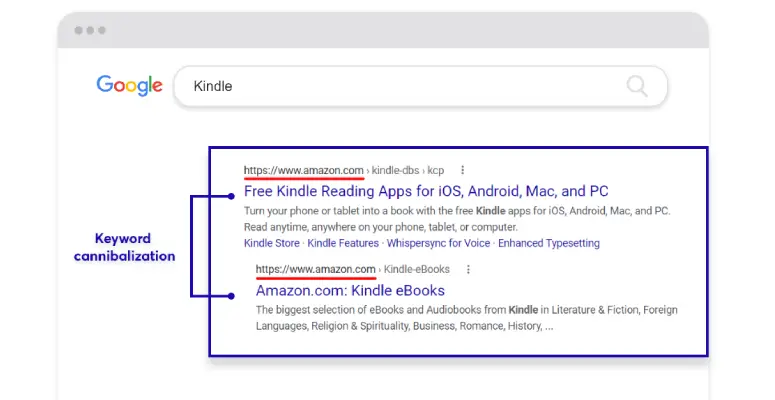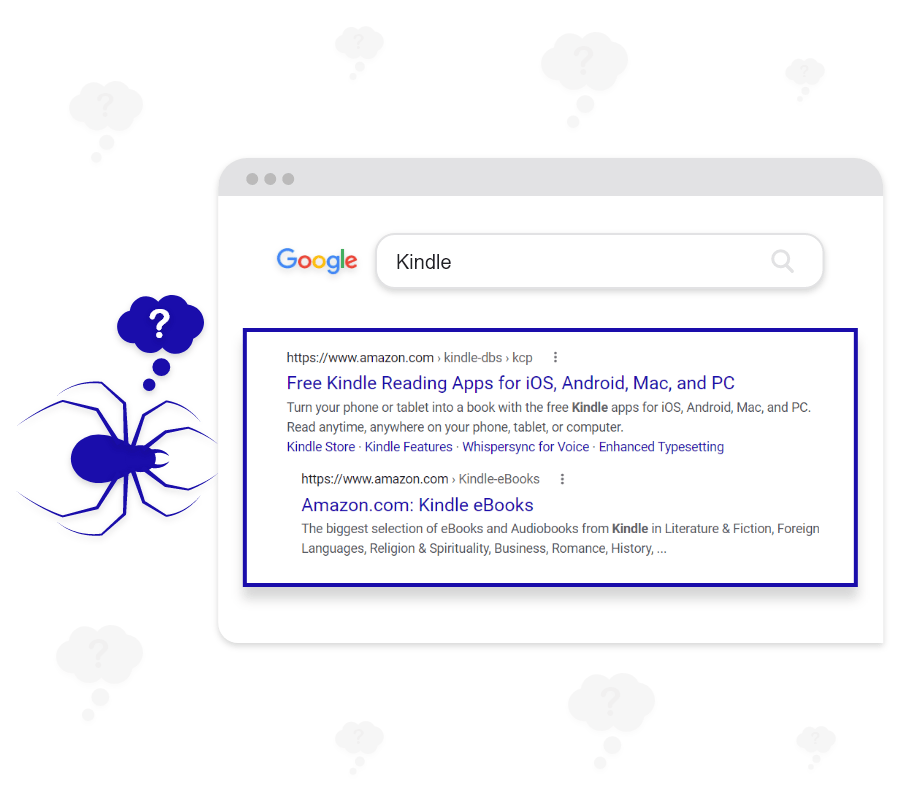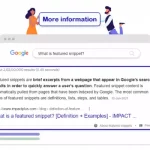
How to Eliminate Keyword Cannibalization? – 4 Effective Ways
Shivani Suryakandan
Posted on April 20, 2023
What is Keyword Cannibalization?
Keyword cannibalization may sound like enriched jargon but on the contrary, it’s quite simple. I’ll keep it to the point.
In general, the word cannibalization means being eaten up by the same species. Sounds a like threat? I will also explain how to eliminate keyword cannibalization.
Now, let me explain this in the SEO context.
Keyword cannibalization is what usually occurs when you have numerous articles or blog posts on your site.
In such a scenario, you may try to optimize some of these articles or blog posts for the same keyword in Google.
This may be done either be due to the similarity in the topics covered but that reason is not of much importance.
What matters the most is the consequence of doing so.
So, just take a birds-eye view of it. When you optimize any two or more similar topics of the same keyword then they both will eat each other’s chances of getting ranked on the Google search page.
Now, do you get as an SEO expert, why should you be concerned about it? No! Then, scroll further.
Is Keyword Cannibalization Bad for SEO?
The answer is a big Yes! Cannibalizing your own keywords is exactly like you competing with yourself to rank higher in Google.
Go through this example if you still couldn’t be clear with it.
Let’s assume that you have got two different posts but under the same topic (a topic on the article of an excluded tenancy and an excluded tenancy agreement). So, in that case, it will be quite hard for Google to distinguish which post it should rank high for a specific query.
In addition to this, there are even chances for the backlinks to get diluted.
As a result of this, both of your posts will probably rank lower. Or, there is a high chance for your target post to rank lower than the other one due to keyword cannibalization.
Therefore, this is the only reason for receiving a red bullet each time you optimize a post for a targeted keyword that you’ve already used.
On the other hand, I’m also bound to remind you that keyword cannibalization can also occur when you optimize posts for targeted keywords that are not just the same, but also similar.
For example, let’s say that you are compiling two blogs and looking for your perfect keyword ranking tool.
And then, the blog titled ‘Which is the perfect SERP tool?‘ gets optimized for the specific keyword (Google ranking checker), while the second blog titled ‘The best-in-class SERP tool‘ gets optimized for the target keyword (Google Rank Checker).
The blogs may be written in slightly different perceptions. Yet, they both are very similar.
But, in this case, the second blog is actually the targeted one but it will be extremely hard for Google to figure out which of the two blogs is the most important.
And, unfortunately, the ranking for both the target blog and the other one drops.
How to Recognize Eliminate Keyword Cannibalization?
Keyword cannibalization is for sure a threat but looking for it isn’t that hard.
To find out if your site has been caught up with this keyword cannibalization, you must simply take up a thorough search of your site.
Only when you do so, you will confront multiple results for the same targeted keyword. And, if this happens, then it means your suspicion is confirmed.
But, keep in mind that, when it comes to looking if keywords have suffered cannibalization, it’s possible to check manually for one keyword.
But, how would you find it for many keywords?
Here comes the need for using a prominent Rank Tracker. It will help in finding the keywords easily that are affected by keyword cannibalization.
Now, all you need to do is to focus on how to eliminate keyword cannibalization. So, look at the suggestions stated below.
1. Modify your internal linking
The prime move to eliminate keyword cannibalization is by altering the internal links provided on your affected pages.
Obviously, you will have web content that links to other content on your site.
Just try to add or change the internal linking of your site.
You can do it by linking the less important page links to that specific page you want to prioritize.
And, this is the smart way to do well on SERP.
2. Merge your content
The next important solution is to merge your content.
That is, if you have two pages with content that may not be the same but even similar, then such web pages can be merged into one single web page
Though it increases your website’s search engine optimization progress, this isn’t a long-term solution.
You can’t expect merging content to come in handy in every situation.
3. Delete your content
Another simple solution to eliminate keyword cannibalization is to delete the content that looks similar with affected keywords.
This may sound as if it’s an extreme measure.
But, when you have old web content that’s similar to the new one yet no longer relevant to the contemporary trends, then just delete it.
If the web page ceases to exist how will the problem exist?.
4. Remove those keywords
In case you find your content to be more important and you aren’t ready to lose both that are similar, then try removing the keyword.
And, make it a point to do this only if that targeted keyword isn’t crucial. Out of all, this is the only simple and easy way to eliminate keyword cannibalization.
There is a new update on this keyword cannibalization subject which is discussed in this blog.
Published by
Shivani Suryakandan
Shivani Suryakandan is a published author and now a Content Marketer for Serpple Pvt.Ltd. She is passionate about engaging readers and making them understand complicated concepts through her interactive and innovative content style. Being an ever hungry bookworm she enjoys hooking readers' attention through high-quality content. On weekends you can find her hidden behind the piled up chores or running behind her toddler. To read more of her writings follow her on LinkedIn.
All stories by Shivani Suryakandan





